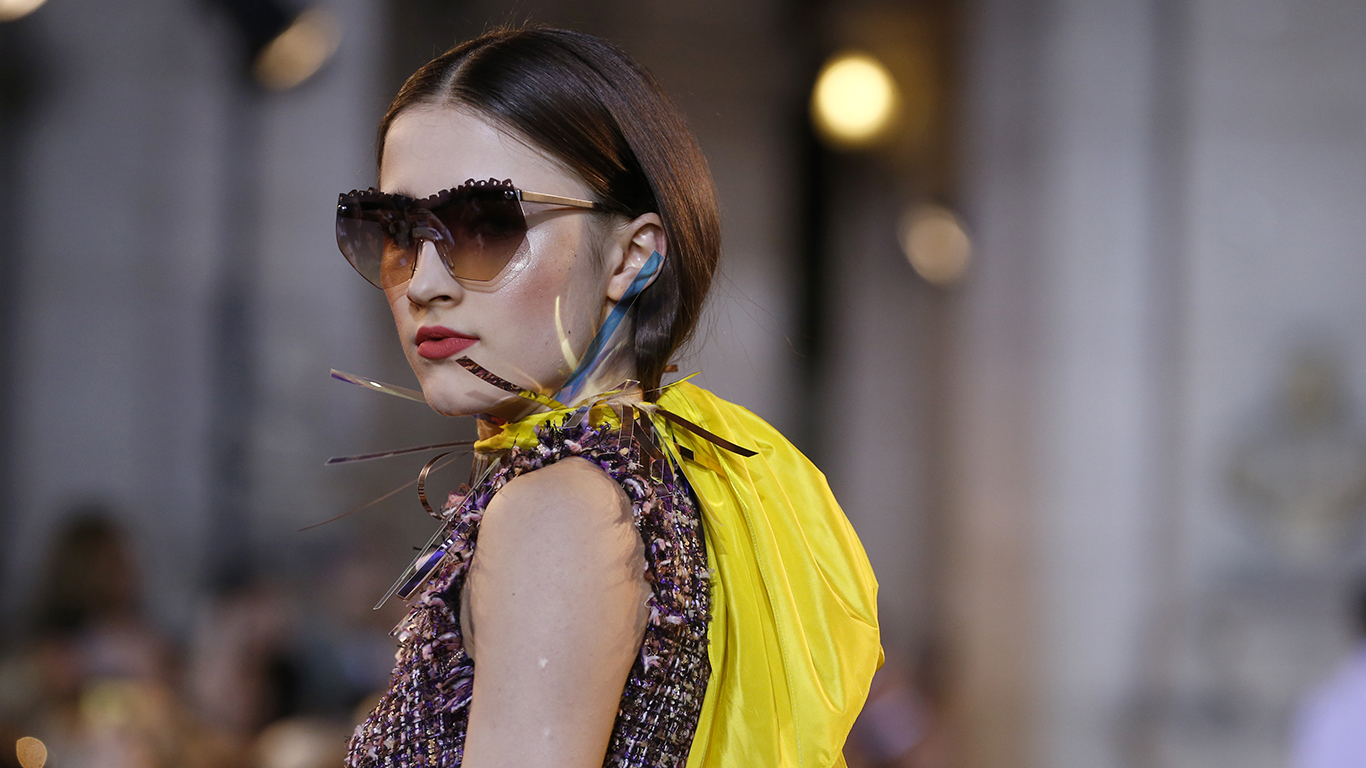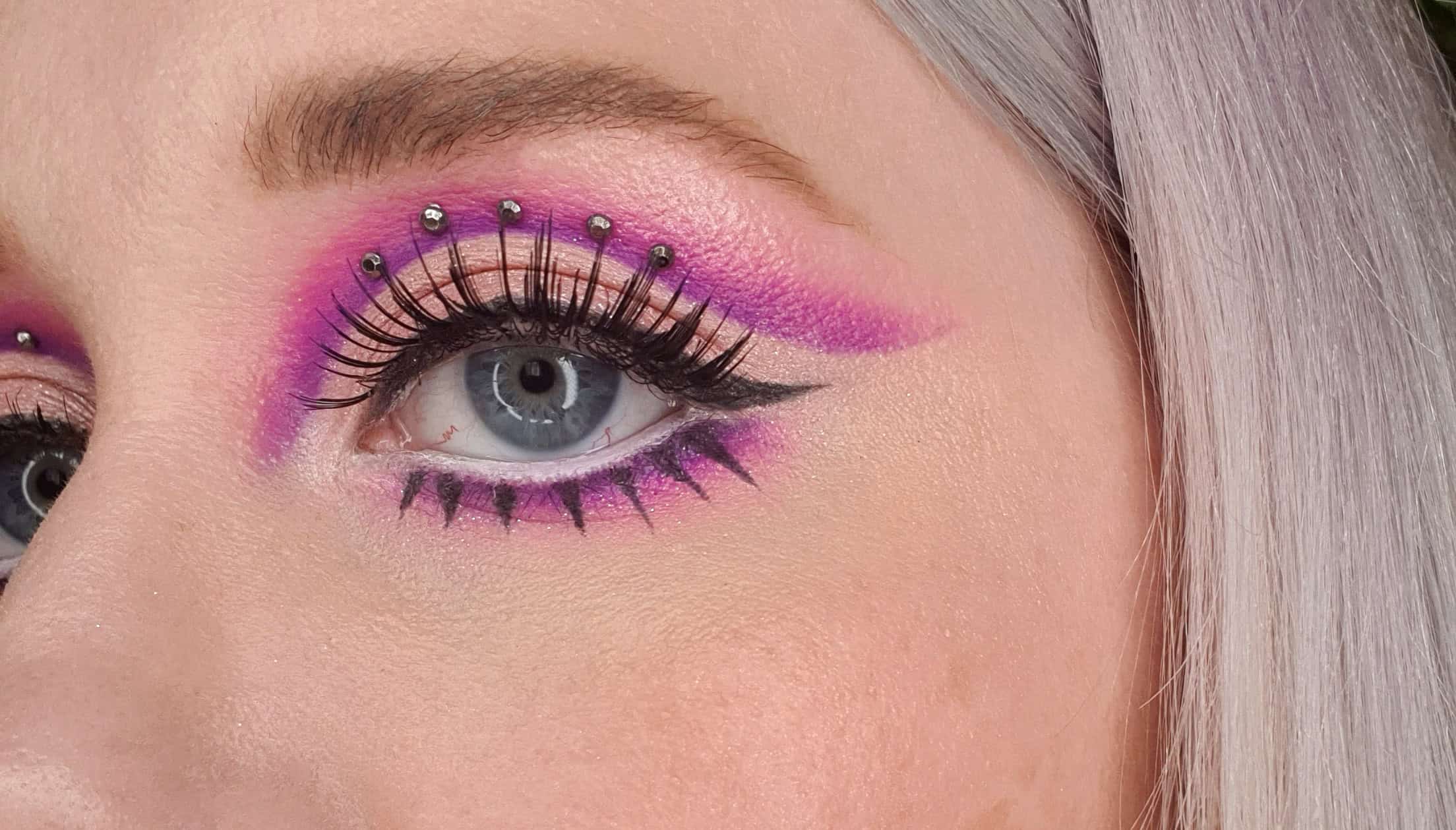Do you ever feel like you can’t even with the spilled tea? Probably not if you’re not a millennial. Millennials are the first generation to experience life connected via the internet. They were the ones excitedly waiting for their dial-up modems to ramp up while listening to the screechy frequencies of their machines. Today, they’re between the ages of 24 and 43.
They have their own lingo. If you’re not caught up with their slang, you might overhear an entire conversation and not understand a single thing. But you can decode millennial speak with a few examples and explanations of what the terms and phrases they use mean. (After this article, check out 10 Things Baby Boomers Do That No One Else Understands.)
To put this list together of things millennials say that no one else understands, 247 Tempo reviewed several sources, including Reddit, where many of the users are millennials who come together to discuss whatever is on their minds. In this case, the thread was all about millennial slang.
“Salty”

- Used in a sentence: Greg got salty after his co-worker got promoted.
This is a descriptive term millennials use that has nothing to do with flavor. While they may use this word to describe a particularly briny dish, they also use it to describe someone in a bad mood (usually bitter or overly sensitive). The person this term is directed at is usually hurt in response to an event and their mood turns sour—so they get “salty.”
“Can’t Even”

- Used in a sentence: Did you see Jackie’s new dress? I can’t even!
The way this phrase is used varies but in all situations, it’s meant to express that someone or something is too much to handle. It could be an overbearing boss who renders a millennial unable to deal any longer. Or, like in the example sentence, a dress may be so stunningly gorgeous that you’re left in awe, unable to compute the beauty.
“Dead”

- Used in a sentence: The comedy special was beyond what I expected. The whole audience was dead!
Millennials have taken words denoting lifelessness and infused them with new meaning. When someone has laughed so hard, they’re out of tears, their bellies are sore, and their throats start hurting —they’re dead. Although that’s the meaning of this term, it’s often used in situations when something isn’t that funny and a millennial isn’t even laughing. It’s morphed in the way “lol” has and doesn’t even require an audible laugh.
“Goals”

- Used in a sentence: Did you see that Justin and Hailey Bieber are having a baby? Goals!
When millennials use this term, they’re being complimentary. They’ve identified something or someone, they move into admiration, and express their desire for emulation. Sometimes, this word is paired with another to specify meaning. For example, “couple goals.” When a millennial wants to emphasize their admiration, they may alter the expression slightly by saying “Goals AF.” The “A” stands for “as” and the “F” stands for a vulgar little four-letter word.
“Adulting”

- Used in a sentence: Becky finally got an apartment without roommates. She’s fully adulting now!
Millennials may be a little late in developing as adults and have come up with a term that describes the very monotonous aspects of life in adulthood. This could be anything from paying bills and budgeting to washing dishes and doing laundry. The mundane aspects of life that get either boring or annoying are all considered a part of adulting. Those who are not a part of this generation may scoff at the fact this became a slang term because they view responsibilities as a regular part of existence (not something that deserves a special term).
“FOMO”

- Used in a sentence: I had a big presentation the night of the concert and I couldn’t focus because of the major FOMO I was feeling.
This term stands for “fear of missing out.” It’s that dreaded feeling that comes over you when you know something is going on and you’re not a part of it. Some people experience FOMO because they have to attend to their responsibilities instead of doing something fun. In other cases, FOMO exists in a steady, underlying state where the person constantly feels as if they are missing out on something more exciting than what they’re currently doing. These people may struggle with turning down invitations.
“The Struggle Is Real”

- Used in a sentence: I saw your bombastic side-eye in the meeting. I get it. The struggle is real.
This phrase is pretty straightforward. When a millennial uses these words, they’re commenting on a tough situation they’re facing. It could be something as trivial as fitting into Spanx or it could be something more serious, like planning a funeral. Whether it’s a small annoyance or a grave hardship, the struggle is real.
“Swerve”

- Used in a sentence: He spotted his ex at the event and decided to swerve so he wouldn’t have to engage with her.
When you swerve, you’re being avoidant. This could be a situation like the one in the example sentence, where the person is purposely avoiding their ex. It can also be used in a different context, like when someone is hitting on you. If you don’t want to give them any of your time, you swerve them. It’s a way to be not just avoidant, but also dismissive. Instead of being straightforward, you avoid any kind of communication or confrontation.
“Swol”

- Used in a sentence: Wow, have you seen Haden lately? He didn’t just glow up, he swol up!
This term means “swollen,” and is used to describe someone who is ultra-muscly. Someone who has been hitting the gym and gotten pumped up is happy to flaunt how swol they are. Those who use this term to describe others are offering a compliment, noting their commitment to their health is showing. It may be someone who is just starting to define their muscles or someone who is dedicated to bodybuilding. The term doesn’t specify the exact physical state of a person, just that they are physically fit.
“Clap Back”

- Used in a sentence: Shawna normally kept her cool but after Darryl insulted her ruthlessly, she clapped back—and it was epic!
To “clap back” means to respond with the same type of energy someone criticizes or insults you with. While some may lean toward the philosophy of turning the other cheek or avoiding conflict altogether, others are quick to respond when someone disrespects them. These people clap back, adjusting their attitude and their words to match the other person’s energy and intentions.
“Extra”

- Used in a sentence: They brought people who weren’t invited, calling them their entourage. They’re being extra.
When someone is being “extra,” they’re doing too much. They’re over the top in a way that feels overwhelming. This could be something silly like wearing a suit and tie to a ball game. It could also be used to describe someone who is crossing the line in an argument. If they’ve lost their cool and start bringing up irrelevant information, they’re being extra during the argument.
“Bae”

- Used in a sentence: I have eyes for no one else but my bae.
Many millennials have left this term in the past. It stands for “before anyone else,” and is used as a pet name for someone you are devoted to. It was frequently used in romantic relationships but best friends have also used this for one another to profess their loyalty to one another. It’s a term of endearment but its overuse caused many millennials to become annoyed by their generation’s own slang.
“Fam”

- Used in a sentence: Listen fam, we’re in this together.
While millennials have their own blood relatives to call family, they also use the term “fam” to refer to their friends. Some people prefer to use “fam” when they’re speaking about or to those in their inner circle. But other millennials use this term more broadly, referring to a larger group of people they consider close. For example, vloggers may greet their viewers warmly, referring to them as “fam.” Though they’re not physically or emotionally close, they embrace their fans and consider them a part of their virtual family.
“Low-Key”

- Used in a sentence: Low-key, I kind of like him. But I’m not ready to go down that road.
This term refers to how excited someone is about something. In the example sentence, the person is acknowledging their subtle excitement, but follows up by explaining that they’re not ready to pursue a relationship. If someone is single and ready to mingle, they may express a different sentiment and instead say they’re “high-key” crushing on someone. That means they’re uber-excited about it and not afraid to be loud about it.
“Spill the Tea”

- Used in a sentence: My co-worker came in with a telling look on her face. Immediately, I told her to spill the tea.
When a millennial spills the tea, they’re not spilling hot water all over the place. What they have is a hot piece of gossip. When they have exclusive information about an event or a person, they come close, huddle their closest confidants together, and “spill the tea.”
“Slay”

- Used in a sentence: Her presentation was brilliant. She slayed!
When you do something incredible, you slay. You can slay an outfit, a presentation, and your goals. It doesn’t matter if it’s a little win or a big win. When you’re slaying, you’re being exceptional. It’s meant to be complimentary.
“Ghosting”

- Used in a sentence: I was talking to that guy for about a month but from one day to the next, he disappeared. He’s totally ghosting me.
Poof! They’re gone. Ghosting happens a lot in the online dating world. Those who use dating apps know this concept all too well. You may be messaging someone for a couple of days, weeks, or months when they suddenly stop responding. It’s like they fall off the face of the earth. Some people don’t believe ghosting is a big deal if you’ve only been speaking for a little while. However, some ghosting scenarios are egregious. A person may avoid breaking things off and instead just disappear. That’s an awful form of ghosting.
“Snatched”

1960s Makeup with a Cut Crease and Big Lashes
- Used in a sentence: She said she wore shapewear for the first time and was shocked by how snatched she looked!
To be “snatched” is to be attractive enough to turn heads. Makeup can be snatched, outfits can be snatched, and bodies can be snatched. When someone is wearing makeup that perfectly accentuates their beauty, they’re snatched. When an outfit elevates a person’s look, they’re snatched. When someone is hitting the gym and seeing definition in their arms and tummy, they’re snatched.
“Basic”

- Used in a sentence: Can you believe they tried to sabotage me for having good taste? They’re so basic.
Unlike most of the other terms on this list, this one is easy to decipher. When you think of something as basic, it’s bland. It lacks color, style, and oomph. In millennial speak, this word extends beyond objects or environments to people. Basic could refer to fashion, music taste, or taste in food/drinks. It points out something that is unexceptional and unoriginal.
“Stan”

- Used in a sentence: I don’t care what happens, I’m a Britney stan for life.
The term “stan” combines the words “stalker” and “fan.” If someone is a stan, they are devoted to the point it’s excessive. The word comes from a rap song called “Stan” by Eminem, in which he describes the obsessive devotion of a fan.
“Humble Brag”

- Used in a sentence: My diamond ring keeps slipping off, it’s so annoying. I have to get it resized. Yes, I know—humble brag!
A humble brag is an act of gloating shrouded in false modesty. Instead of outright bragging, a person may complain or share something self-deprecating while also showing off. Sometimes, this is done inadvertently and a millennial may clock it and call out a humble brag. Other times, it’s done intentionally and the person calls out their own humble brag.
“Woke”

- Used in a sentence: Woke culture started out with good intentions but it seems to have taken a left turn somewhere.
To be “woke” is to be awake to the current state of society, aware and outspoken about inequalities. While classic activism requires feet on the ground, a millennial can be “woke” behind their phone screens with social media posts. Critics consider these woke folks “slacktivists” because their only efforts are spewing opinions online.
“Receipts”

- Used in a sentence: He can confront me about it all he wants. I have receipts.
If you’ve been hypocritical or conniving and someone says they have receipts, be careful. They have something on you. This could be something like screenshots of text messages, saved emails, and even photos. When a millennial has something to prove, they show up with proof—and they call it “receipts.”
“No Cap”

- Used in a sentence: I saw it with my own two eyes—no cap.
When someone says “no cap,” they are letting you know that they’re not lying. Maybe what they’ve said sounds outlandish and they want you to know they’re being serious. A person may also use this term when you arch an eyebrow and question them silently. They’re just confirming they’re telling the truth.
“Cray”

- Used in a sentence: I tried sorting things out with her family. But there was no reconciling—they’re all cray.
Millennials are so creative, that they remove a letter from an established word and call it slang. Cray just means crazy.
“Shade”

- Used in a sentence: I’m not trying to throw shade but those shoes with that outfit? Not a match.
Interestingly, shade is something you throw. Typically, millennials use this term to refer to criticism or even insults. In the example sentence, someone is prefacing an upcoming critical comment by saying they’re not meaning to be insulting, but they are going to share something that might come off that way.
“Ratchet”

- Used in a sentence: They’re too ratchet for a fancy restaurant. Not only would they not know what to wear but they wouldn’t know how to act either.
When someone is ratchet, they lack class. These people are messy, don’t pay much mind to social cues, and bulldoze through any environment like a tornado. They’re loud, they speak their mind without a filter, and some of them are proud to wear the “ratchet” title. Generally, though, it’s an insulting term.
“Bruh”

- Used in a sentence: Bruh—when I tell you what happened, you won’t look at him the same.
This is a casual term used among friends to refer to one another. Usually, when a millennial says “bruh,” they’re trying to get your attention because they’re about to tell you about something surprising that happened. It could also be used as a stand-alone term. For example, a person who spots a fancy sports car may tap their friend and say, “Bruh,” as they point to it.
“Okay, Boomer”

Two business colleagues working together in meeting space. Mentor instructing newcomer. Young Indian woman with laptop and mid adult man with tablet discussing new project. Teamwork or training concept (Two business colleagues working together in meet
- Used in a sentence: Okay, boomer. I hear your outdated ideas and I’m not interested.
Millennials have found a way to cleverly insult the baby boomer generation with these two simple words. When a millennial says, “Okay, boomer,” they’re being snarky and disrespectful, minimizing the perspectives of the baby boomer generation because they find their ideas rigid and out of touch.
“Troll”

- Used in a sentence: Have you seen her comment section recently? Trolls are taking over.
A troll is a keyboard warrior, purposely commenting online to provoke outrage. But this term could also be used in life away from the computer screen. If someone is being rude and insulting, millennials carry the term over and refer to them as trolls.
“YAAAS”

- Used in a sentence: You got your dream car? YAAAS! Let’s celebrate!
This term is pronounced how it’s spelled, with a drawn-out “a.” It’s celebratory and used in various contexts. So long as you’re feeling enthusiastic, you can pop this into a conversation at any time.
“Sus”

- Used in a sentence: He walked in looking around all shifty. I don’t know about you but he feels sus to me.
Sus is short for “suspect” or “suspicious.” You use this term when you notice something is off. It pairs well with GIFs of narrowing eyes.
“Bye Felicia”

- Used in a sentence: She had worn my patience thin so by the time she got up to leave, all I could utter was, “Bye, Felicia.” I threw in an eye roll for good measure.
This phrase is used dismissively and insultingly. It shows that you’re unamused, annoyed, or upset with someone and when they leave, you’re letting them know you don’t care. (Next, read 10 Things Millennials Do That No One Else Understands.)